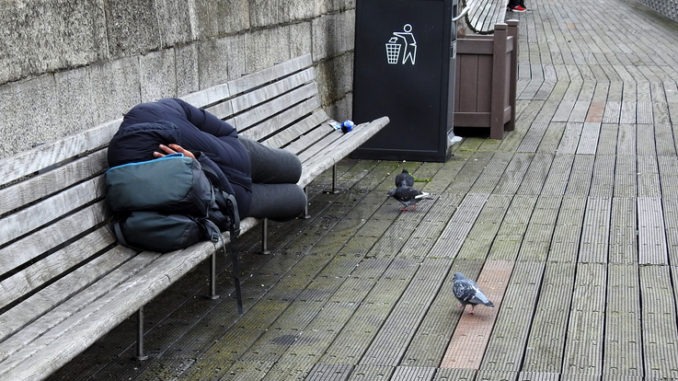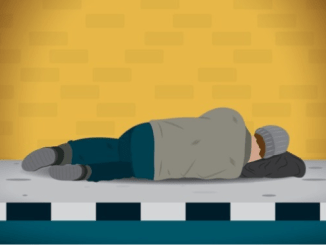
It is impossible for GP practices to solve all of society’s ills, says Homeless-Friendly charity founder and GP Dr Zahid Chauhan, but there is something we can address – proper access to primary healthcare for homeless people
Research by the University of Birmingham at four homeless shelters recently found that most rough sleepers had endured negative experiences when visiting their nearest surgeries; this included being refused treatment due to the lack of a fixed address.
As a proud servant of our NHS, that news sickens me to the stomach. The average life expectancy of a rough sleeper is just 47 years of age, and they experience everything from higher propensity to falls, to virulent infections and squalid mental and dental health. As one fellow doctor said to me recently, ‘Here is the one group in society who need the most medical help – and yet they get the worst service.’
Or, it seems, no service at all.
Homeless-Friendly charity
I began the Homeless-Friendly charity ostensibly because, as an out-of-hours doctor, I met rough sleepers in town and city centres who were in desperate need; this included a man who was trying to remove his teeth by himself. Holes in our dental provision are something we all know about as GPs, since we dispense painkillers and antibiotics for mouth infections, when really it is ongoing check-ups and treatment at a dentist that is required.
I then encountered a man who had walked nine miles to get treatment at A&E, because he had been refused care at every surgery he tried to avail himself of. Shameful.
And it is emergency departments that are bearing the brunt of the homeless healthcare problem – from offering somewhere warm to stay for a few hours, to dealing with deadly heart conditions – and the problems that rough sleepers have are often masked by the use of recreational drugs.
GP registration
Rammed to the rafters, A&E seems to be the only place where homeless people are not rejected because cast adrift is often how they feel when refused primary healthcare – largely because of a lie.
The chief success of Homeless-Friendly has been to challenge the myth that proof of address is a necessity for access. No, it isn’t. NHS guidelines clearly state, ‘GP services cannot refuse to register someone because they are homeless, do not have proof of address or identification, or because of their immigration status. GP surgeries can only refuse to register someone if they are already full, or if the person is living outside the practice area – and they must explain this in writing.’
A swift dismissal by a member of surgery staff is also, I am afraid, symptomatic of a fear and snobbery around rough sleepers – their mere presence in some waiting rooms is enough – and this inherent worry around a poor internet review has some practice staff ushering the homeless to the front doors.
And so, allied to education around registering homeless people, we have been nurturing a better understanding – and yes, empathy – with patients of no fixed abode.
NHS impact
The thought of being an information point for the rough sleeper may appear to be arduous – but imagine if they get treatment for an addiction which results in them attending less and saving the NHS millions in its budget.
Our participants have also extended a handout to the community to create food banks and form new relationships with those working to improve health and social care in neighbourhoods.
With community centres closing, and businesses and pubs being liquidated, there is an argument to say that surgeries are the only hubs left in some districts; proactively protecting your homeless population means knowing your patient group better and, in the long run, reducing the use of precious resources.
During its two-year lifespan Homeless-Friendly has worked with rural, suburban and urban practices, some of which have a visible cohort of rough sleepers and others which have people on the verge of losing their homes. Not one participant has received criticism for their stand, online or off from their existing patients.
None have found it impossible to implement. Instead they have engendered a sense of compassion, drawn closer to their communities and, more importantly, eased pressure off A&E units and nipped medical problems in the bud before they became too serious.
This is the true nature of primary care. At the heart of its community, changing lives for the better and making sure that, most of all, the vulnerable are taken care of.


Be the first to comment